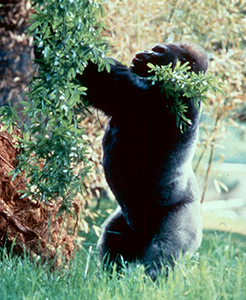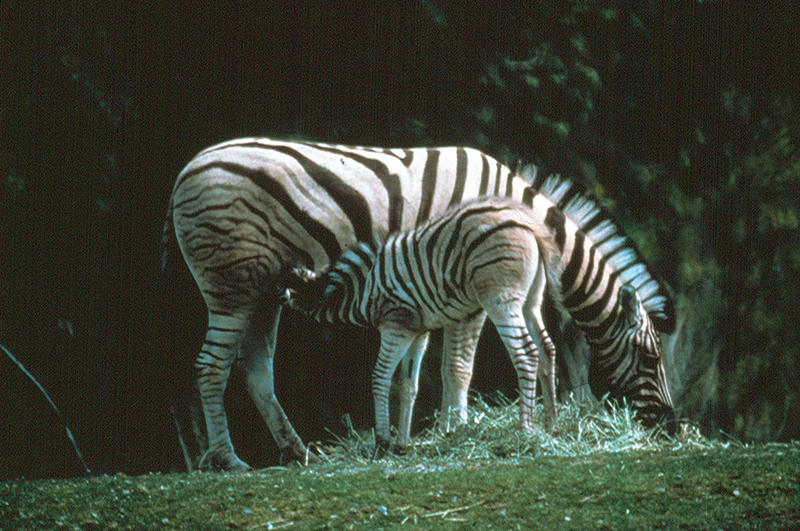Welfare
& Ethics

Welfare and Ethics
Why do we do what we do? Are our motivations ethical and by which standards? Do our actions support and enrich the welfare of our communities, our community of plants, animal and people, our local, national, and global community? In what ways do our zoo, aquarium, sanctuary and other managed animals standards, management systems and visitor-animal interactions support and enrich the welfare of all stakeholders? Good animal welfare also benefits the welfare of carers, visitors, the business, and the community. Environmental and behavioural enrichment for animals as moved far beyond relieving boredom and compensating for inadequate programs and facilities. It is becoming the foundation of achieving behavioural competence and physical and psychological fitness…the conditions we presently call wellness. This section discusses and demonstrates how planning for species-typical natural behaviour and building-in opportunities for animals to engage in self-selected choice and control of their activities and environments can lead to both greater welfare and greater relative freedom for animals in our care.
Animal Welfare Obligations

What are our obligations to the animals in the care of zoos, aquariums, and sanctuaries?
Five (old) Freedoms from (RSPCA 1979):
- Hunger and Thirst
- Discomfort
- Pain, Injury or Disease
- Fear and Distress
- To Express Normal Behaviour
New Five Freedoms …To (Coe, 2017):
- Achieve Competence: “Effective performance of normal functions”
- Have Choice: “Right or ability to choose”
- Take Control: “The power to influence…the course of events”
- Experience Variety: “The quality of being different or diverse; the absence of uniformity or monotony”
- Engage Complexity: “The quality of being intricate or complex”
Definition quotes from Oxford Living Dictionary (Online)
Read more
Coe, Jon C., 1995. “Giving Laboratory Animals Choices” in Lab Animal Magazine, Vol. 24, No. 7:41-42.
Coe, Jon C., 1998. “Chimpanzee Choices”, Keynote Address, Chimpanzoo Conference Proceedings, Jane Goodall Institute, Vol. 1, pp. 17-18. Abstract
Coe, Jon C., 1999. “Increasing Affiliative Behavior between Zoo Animals and Zoo Visitors” in 1999 AZA Convention Proceedings, American Zoo and Aquarium Association, Silver Spring, MD, pp. 216-220. Abstract
Coe, J., Rowe, R., Sherwen, S. 2017. “Animal welfare driving the zoo design process: Tools and examples from Zoo’s Victoria.” Wroclaw Zoo Design Conference, en press.
Webber, Sarah, Cobb, Mia L and Coe, Jon, 2022, “Welfare Through Competence: A Framework for Animal-Centric Technology Design“, Frontiers in Veterinary Science, Section Animal Behavior and Welfare, 30 June 2022
Two additional important references:
Gray, J. (2017) Zoo Ethics, The Challenges of Compassionate Conservation. CSIRO Publishing.
Sherwen, S. L., Hemsworth, L. M., Beausoleil, N. J., Embury, A., & Mellor, D. J. (2018). “An animal welfare risk assessment process for zoos“. Animals, 8(8), 130.